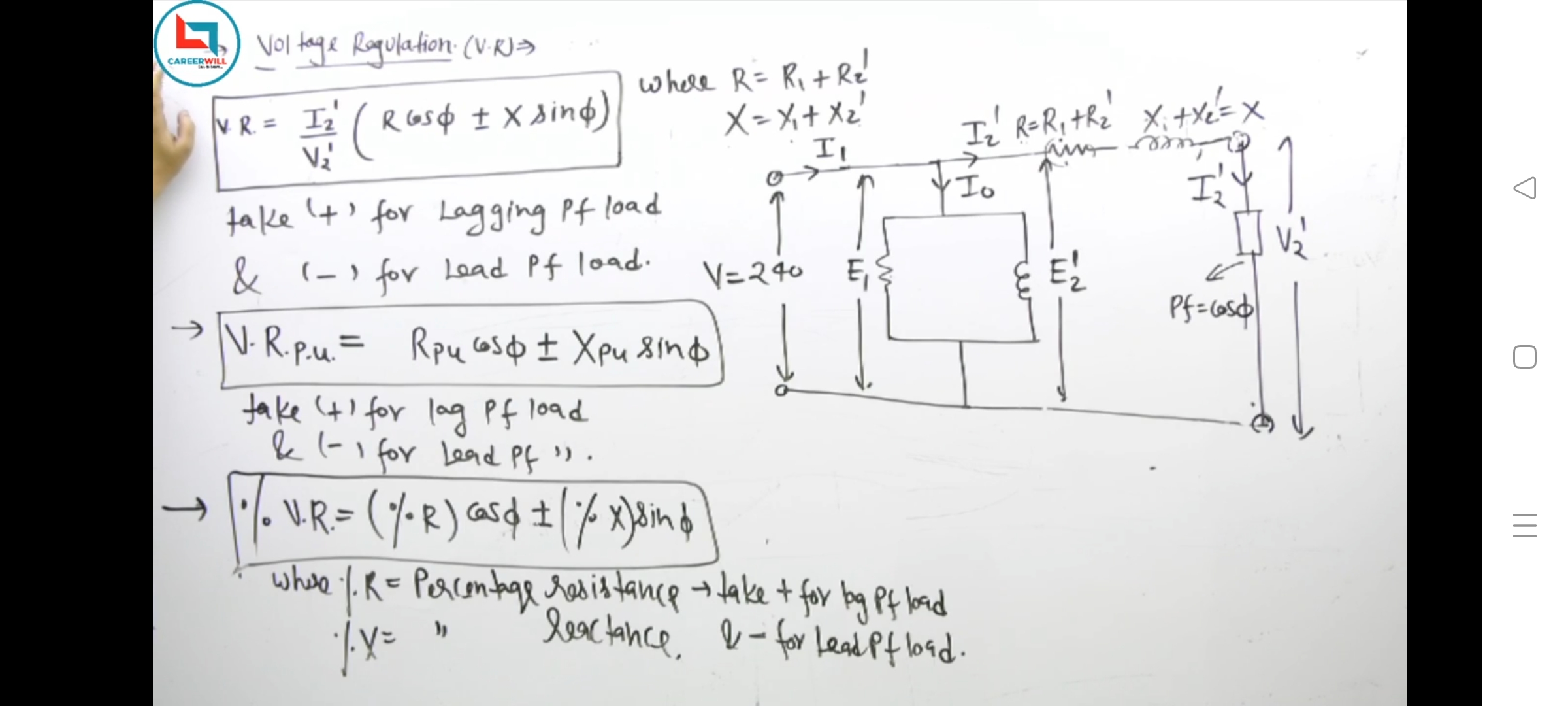What is voltage regulation, and how is it calculated for different power factor loads?

Understand the Problem
The image discusses voltage regulation in electrical systems, providing formulas for calculating voltage regulation for lagging and leading power factor loads. It illustrates the relevant equations and circuit components involved in the calculation.
Answer
Voltage regulation is VR = (I2/V2') * (R cos(φ) ± X sin(φ)).
Voltage regulation is calculated using the formula: VR = (I2/V2') * (R cos(φ) ± X sin(φ)) where '+' is for lagging PF and '-' for leading PF.
Answer for screen readers
Voltage regulation is calculated using the formula: VR = (I2/V2') * (R cos(φ) ± X sin(φ)) where '+' is for lagging PF and '-' for leading PF.
More Information
Voltage regulation measures the change in output voltage from no-load to full-load conditions, indicating a transformer's ability to maintain output voltage.
Tips
Ensure the power factor angle φ is correctly used for trigonometric functions, and the correct sign is chosen based on load type.
Sources
- Voltage regulation - Wikipedia - en.wikipedia.org
AI-generated content may contain errors. Please verify critical information